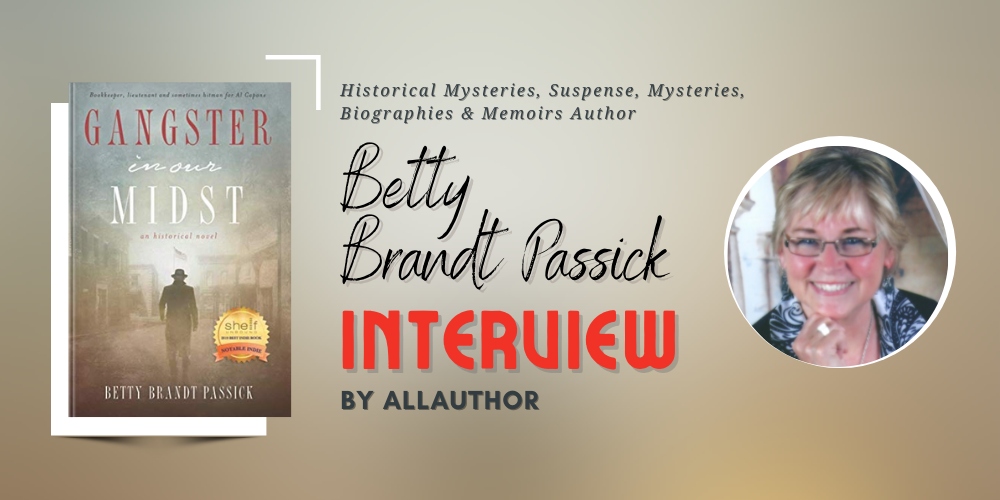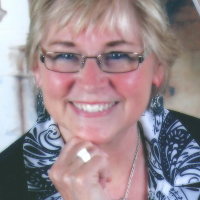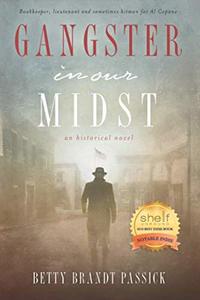Where did you grow up? What was life like for you then and what do you miss most about your childhood?
I grew up in Fairbank, Iowa (similar to ‘Oxbow’)—the site of my Gangster Series: Gangster in Our Midst (2017), and The Black Bag of Dr. Wiltse, Murder on the Prairie (available summer 2021). A third book in the series will follow soon.
My family moved into the small town from the farm in the mid-1950s when I was 9 years old. Gangster in Our Midst was fun to write because it reminded me of my childhood: fishing with my brothers from the Island Park; getting my first sales experience, selling potholders door to door I made on my 8”x8” metal loom; and working at the café during high school (I don’t think I ever waited on the town’s gangster, Louie La Cava, but perhaps I just never knew it).
I currently write a personal column for the Fairbank Islander newspaper, and administer a Facebook group page, “I Grew Up in Fairbank, Iowa”—so I’ve stayed pretty connected.
My books are available through local bookstores, Amazon, Walmart & Barnes & Noble. Follow me on Facebook, LinkedIn, Twitter, Instagram, and www.BettyBrandtPassick.com.
In what ways is being a grandparent different than being a parent?
I am the mother of two children, and I readily can recall the busyness of my life back then. Along with being ‘chief cook and bottle washer,’ I worked in our heating and air conditioning business, wrote a personal column for the local newspaper, took a college course each semester. In the evenings, the kids and I sat around the dining room table doing homework.
Fast forward to a decade ago, when I retired from a Fortune 500 company and began writing books. By then, my daughter and her family resided in Colorado, and my son and his family in Texas.
The difference between parenting and grandparenting? At the end of the day, the hard work of school, developing a strong work ethic, moral compass, and love for mankind--i.e., to ‘see God in all people’-- ultimately falls on the parents’ shoulders. As grandparents, we support them in their goals.
What did your mother tell you that you will never forget?
Mom wasn’t so much a soothsayer as she was a ‘lead by example’ kind of person. I credit her with my work ethic (Dad, too)--and my love for diverse ethnic foods. My parents were fourth generation German immigrants, and nothing of an animal’s carcass was ever wasted. My siblings and I ate food our grandchildren won’t touch.
How would you describe your experience at a Fortune 500 Company?
I worked at 3M Company for the last 10 years of my career. Those years were exciting and stimulating and ones I wouldn’t have missed working for this company for anything in the world.
What challenges did you face while writing your memoir, We Are Eight, A Memoriam?
Most challenging was remaining within the bounds of my Mission Statement—or else the book would have turned into the history of the world (that says a lot about me as a writer). In the end, the 400-page pictorial memoir, published in 2015, traced four German family lineages which emigrated from Germany to America beginning in the 1840s, all settling in Bremer and Fayette Counties, Iowa. The book includes genealogy, biographies, interviews, and photos—with each generational story placed in the local, regional, state, and national historical setting of the time. The book is the result of five years’ research. Most gratifying was finding photos of my ancestors all the way back to 1846.
How much time did you spend researching the ‘mystery man' in Gangster in Our Midst who had come to your small Iowa hometown in the early 1920s?
It took about a year to research and write Gangster in Our Midst. The book spans about sixty years. The hardest piece by far was identifying the key players of Chicago Kingpin Al Capone’s ‘outfit.’ I mean, how do you find people in history who largely used aliases, and did everything in their power to hide from the law? Fairbank’s gangster, Louie La Cava, told Fairbank locals he was a bookkeeper for Capone. I will never forget the excitement I felt the day I found a photo of La Cava and Capone in a California newspaper article, which really tied them together. More names in Capone’s inner circle came from myriad newspaper articles and police reports--though it took many hours of research to find them. La Cava had gone into hiding for two years before Capone’s tax evasion trial in October 1931. The Feds finally found him and served him with a subpoena to testify as to Capone’s income between 1924-1929. In the end, these gangsters clearly weren’t as well hidden—or their illegal activity--as perhaps they had hoped.
What was the most unusual fact you discovered while writing your novel, Arlington Hills Presbyterian Church: 125 Years, 1888 - 2013?
Perhaps the biggest surprise was Arlington Hills Presbyterian Church had supported Christian ministry in China--almost since its founding in 1888. One Missionary Society report from 1914 noted: “Sent one dollar to Ruth Brack [former church member] to replace a pair of overshoes she lost when she spoke at the Praise Service.” Miss Brack’s missionary responsibilities were “language study and nursing, while keeping an evangelistic aim in mind.” Ultimately, she helped to lay the foundation for what would become China’s medical education infrastructure. Moreover, it’s believed she was among the more than 2,100 internees held at the Los Baños prison in 1942 who were captured following the Japanese invasion of the Philippines after Pearl Harbor. She eventually returned to China. The last Presbyterian missionaries left China around 1952
Do you usually write the 'back-of-the-book' blurbs or does your editor?
I plan to self-publish all my books. As for the blurbs that end up on the inside back cover, I invite authors, friends, and others to read the book and to write a review, then I choose from among the reviews that speak best to the strengths of the story.
What kind of impression do you hope your books will leave?
I write books renowned for their infusions of earthy soul, faith-isms, and Midwestern values.
What type of music do you enjoy listening to?
I grew up singing in the church choir, so initially I sang and enjoyed spiritual music. In fact, both my husband and I sang in choirs—church, community, and semi-professional—from the time we were young children until about a decade ago (my husband’s college major was Music). We’re seasonal ticketholder to local orchestras and theatres, and readily enjoy a wide variety of vocal and instrumental music. We also support artistic talent of all varieties.
Did you expect your historical mystery novel, Gangster in our Midst (2017) to win a 2019 Notable 100 Indie Book Award?
I was confident the neglected, true Iowa story I told in Gangster in Our Midst was worthy of a book—and the number of books sold the first twelve months informed me readers agreed with me. Winning a book award, however, would inform me that professionals believed I had written a good story and told it well. So yes, I am pleased to have won the Indie Book award, which has greatly encouraged me to continue to work to improve my writing and storytelling skills.
Which story have you saved up to tell your grandkids?
I’ve learned, like everything else in life, one doesn’t write a good book on one’s own. Most authors find it ‘takes a village,’ and I have developed author friendships that continue to guide me in the writing process. Many people from my hometown are also involved in the story and character developments. These are the stories I will tell my grandkids.
What according to you are the key ingredients of a successful book?
One author friend said it best: “It’s ¼ creative, ¼ writing skill, and 50 percent stick-to-itiveness.” I wholeheartedly agree.
How many plot ideas are just waiting to be written? Can you tell us about one?
I have manuscripts in my head for two more books—all part of the ‘Gangster Series.” The second book in the series, The Black Bag of Dr. Wiltse, is a prequel to Gangster in Our Midst--available summer 2021. Readers will meet new characters, in and outside the familiar setting of ‘Oxbow.’ The third book in the series will follow shortly.
What do you like the most about AllAuthor?
I appreciate AllAuthor for connecting my books with new readers. You fill the gap outside of my reach, and I’m grateful for all that you do.












